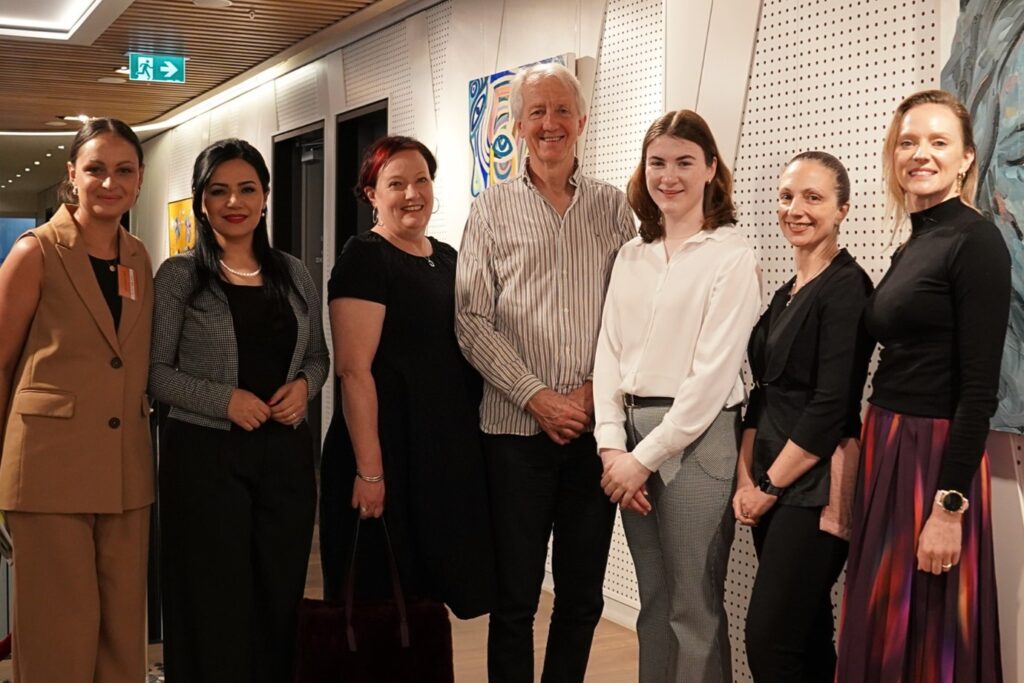Caregiving responsibilities can affect anyone, regardless of age, gender, ethnicity or cultural background.
Some people might think it’s rare for someone so young to carry the responsibility of caring for someone, but it’s far more common than we realise.
From a young age, Jacqueline de Mamiel grew up as a carer for my twin brother and my older brother. She also began caring for her mum in 2016 after a breast cancer diagnosis.
“It was really something that I sort of stepped into naturally, that role as a twin. [We] went through all the stages of life together at kinder and school, and I was kind of his built-in care,” says de Mamiel, speaking on a recent panel in Melbourne, supported by Women’s Agenda and Carers Australia.
“The teachers […] wanted me to be his go-to emotional support person if he was emotionally dysregulated or struggling in the school system, and it was a big challenge for me balancing my own education, my role as a sibling, but also a really intense caring role.”
De Mamiel says one of the biggest contributor to this challenge is the misconception that young people don’t provide a “substantive caring role”.
“Undervaluing young people really means that we can’t access the support that we need.”
Speaking on the panel as well, Maryam Zahid, Director of the organisation Afghan Women on the Move, says she’s working to challenge cultural misconceptions of what a caregiver does.
“From what I have learned in my own journey as a woman, as a career woman, and also the work that I do within the community sector and advocating for women, there’s a huge gap around addressing and looking at the [support given to] multicultural refugee women.”
Offering an example, Zahid, an Afghan-Australian, says that recently at a family gathering, an individual asked if she was “brainwashing women not to wash dishes”.
As an Afghan-Australian, Zahid says she’s coming from a culture and community with a lack of information about care responsibilities, where many people view it as simply “chores at home”.
“So since then, I’ll be thinking, how do we define this topic to the community, ” says Zahid, adding that the particular individual who’d brought up the question had “lived in Australia for more than 36 years, and she had no idea what [caregiving responsibilities entailed]”.
“From what I have learned in my own journey as a woman, as a career woman, and also the work that I do within the community sector and advocating for women, there’s a huge gap around addressing and looking at the [support given to] multicultural refugee women,” says Zahid.
Another panellist, Dennis Sharples and his family have been supporting their son, Richard, for many years now. Richard, 35, is autistic and non-verbal.
The diagnosis came as a shock, and Sharples explains that Richard’s behaviour isn’t always easy to navigate.
“He can’t communicate any of his basic needs, like the toilet, or if he’s thirsty. He can’t get his own food. All those things just don’t happen. So, we’ve got to anticipate what he wants and try to provide it in a timely way,” says Sharples, adding that it has always been hard to go on public outings or trips as a family, “simply because Richard’s behaviour is too difficult to control”.
While Sharples says he was lucky to stay at work during the caregiving, this didn’t come without trial. He also acknowledges that his wife and kids became carers as well, meaning he understands how easy it can be as a society to underestimate the needs of young carers.
“Looking back now, we completely underestimated what needs to be done for young carers,” says Sharples.
“They’re born into this. I was a fully informed adult– as much as I got this diagnosis of issues – I got to make a conscious decision about whether or not I would still stay as a carer.”
An autistic person herself, Mel Spencer also has three autistic children and works extensively within the autism community. Speaking on the panel, she says what she’s done through her organisation, Different Journeys, is replicate something she wishes were around when she was younger– ways for the autistic community to connect, empower and support each other.
“I think my journey would have been so much different, particularly in relation to my mental health,” she says, adding that this also would have supported other relationships and caregivers.
“Even in my relationship with my husband, he never knew what he was walking into each night, and he had done a full day of work.”
“So those secondary carers and having conversations with them about how to support the person who’s at home is really instrumental.”
Spencer says that it’s important not to “lump [caregivers] all into one box”, as everyone is dealing with different issues.
“I think that in the workplace, that understanding and support [is important], and everything I’ve learned is actually through peer support.”
To learn more about how to support caregivers, check out the Carer-Inclusive Workplace Initiative’s website to find free resources and e-learning.


